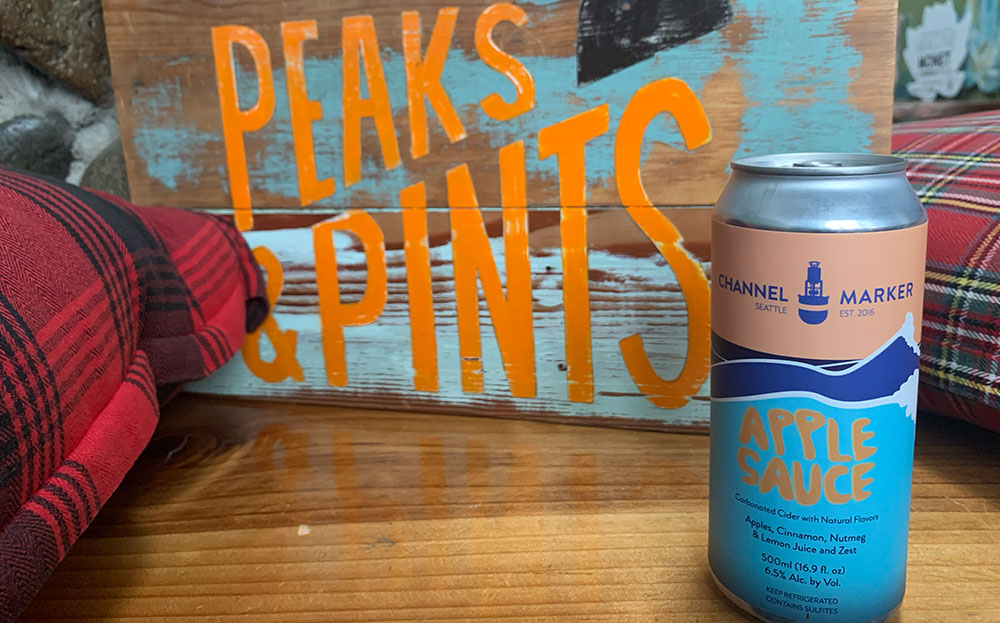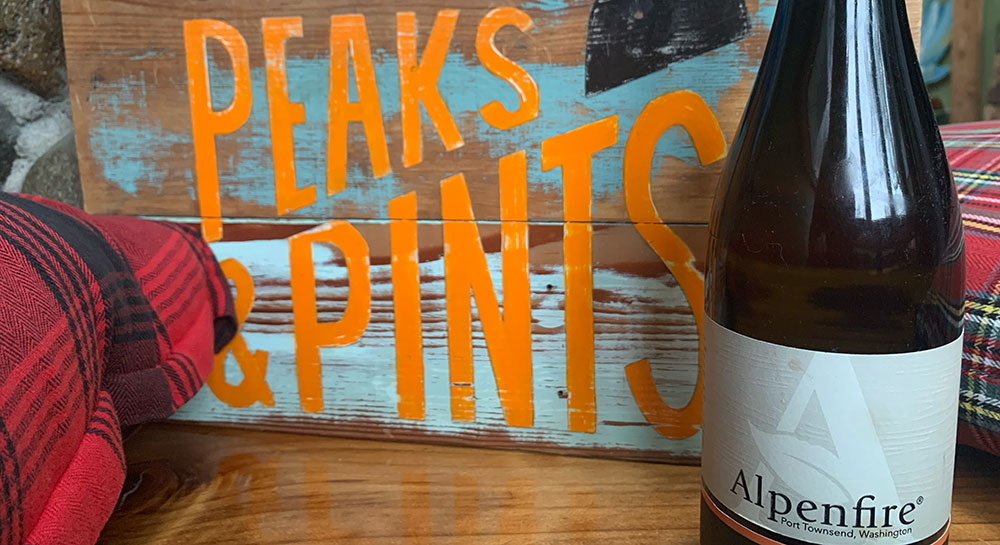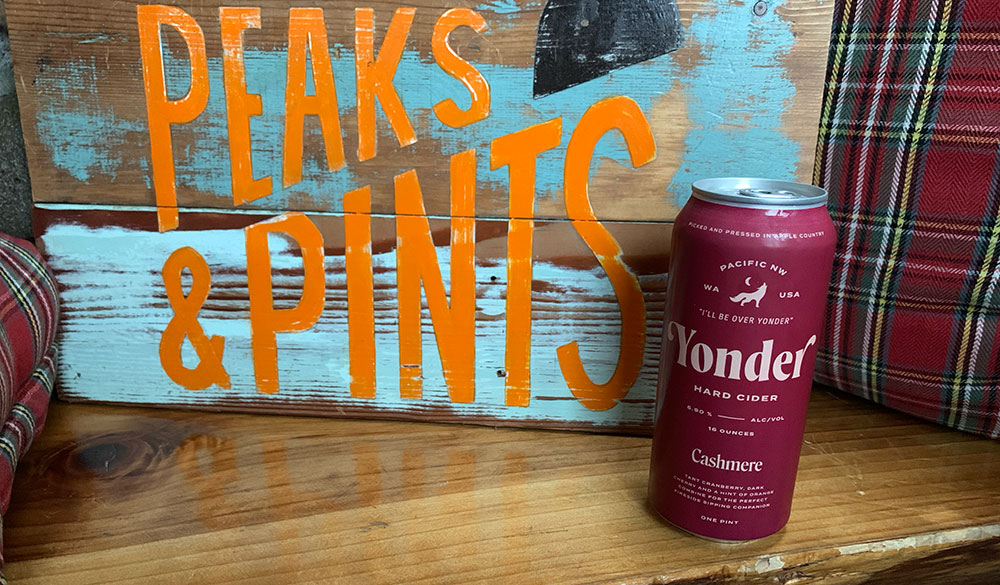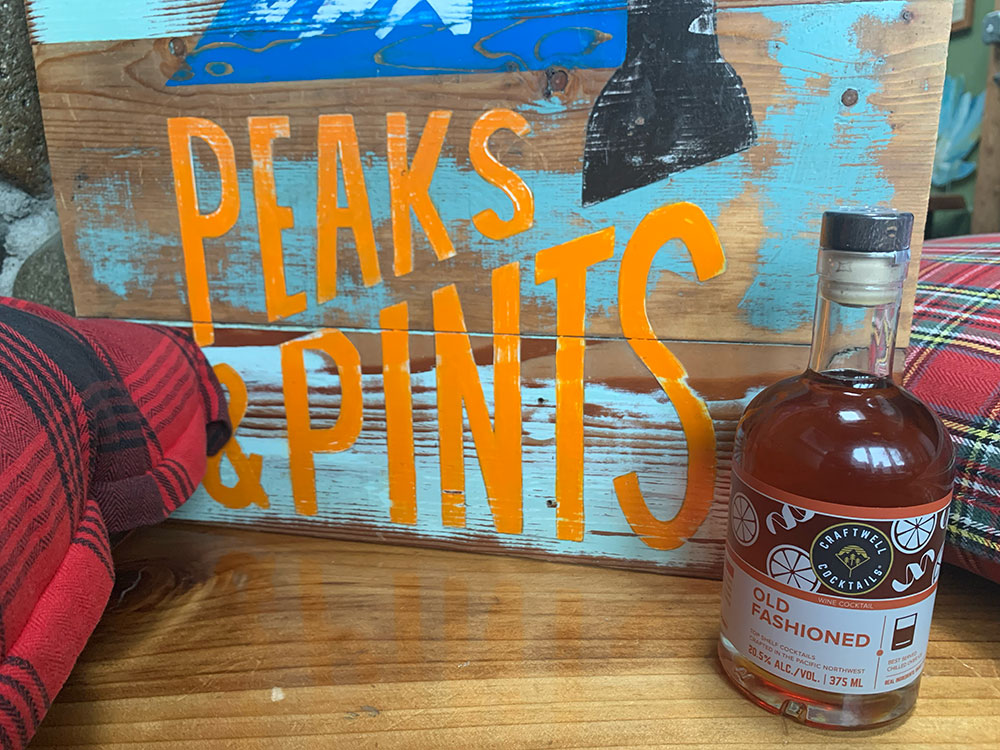 Apples were among some of the first crops grown in colonial America. Potted seedlings and bags of apple seeds were brought over on the Mayflower. The Bible-thumping Puritans were not teetotalers. Apple orchards in colonial America usually meant one thing: hard cider. Apples flourished in the fertile soil and friendly climate, and soon apples were a key part of most colonial farms and menus. When a young George Washington ran for Virginia’s House of Burgesses in 1755, he didn’t shell out for drinks — and lost the election in a 271-to-40 landslide. Undeterred, Washington ran again in 1758. And this time, the cider was flowing. Washington’s campaign served up 144 gallons of hard cider and other libations, and Washington cruised into office. Without hard cider, who knows whose face would be on the $1 bill? John Adams was strict about having an apple a day, and cider was his preferred way to get it. Before he settled in to work on running the country or helping gain independence, Adams kick-started each day by draining a tankard of hard cider. Thomas Jefferson was a proponent of cider and devoted a large portion of the South Orchard at Monticello to cultivating cider apples. Jefferson called his Taliaferro cultivar “the best cyder apple existing” and dismissed European apples with “They have no apple to compare with our Newtown Pippin.” Today is President’s Day when the United States recognizes the birthday of our first president, George Washington. It’s also Monday, the day Peaks and Pints offers a flight of hard cider. Therefore, considering how cider shaped Colonial America, enjoy Peaks and Pints Monday Cider Flight: 2024 President’s Day.
Apples were among some of the first crops grown in colonial America. Potted seedlings and bags of apple seeds were brought over on the Mayflower. The Bible-thumping Puritans were not teetotalers. Apple orchards in colonial America usually meant one thing: hard cider. Apples flourished in the fertile soil and friendly climate, and soon apples were a key part of most colonial farms and menus. When a young George Washington ran for Virginia’s House of Burgesses in 1755, he didn’t shell out for drinks — and lost the election in a 271-to-40 landslide. Undeterred, Washington ran again in 1758. And this time, the cider was flowing. Washington’s campaign served up 144 gallons of hard cider and other libations, and Washington cruised into office. Without hard cider, who knows whose face would be on the $1 bill? John Adams was strict about having an apple a day, and cider was his preferred way to get it. Before he settled in to work on running the country or helping gain independence, Adams kick-started each day by draining a tankard of hard cider. Thomas Jefferson was a proponent of cider and devoted a large portion of the South Orchard at Monticello to cultivating cider apples. Jefferson called his Taliaferro cultivar “the best cyder apple existing” and dismissed European apples with “They have no apple to compare with our Newtown Pippin.” Today is President’s Day when the United States recognizes the birthday of our first president, George Washington. It’s also Monday, the day Peaks and Pints offers a flight of hard cider. Therefore, considering how cider shaped Colonial America, enjoy Peaks and Pints Monday Cider Flight: 2024 President’s Day.
Peaks and Pints Monday Cider Flight: 2024 President’s Day
 Channel Marker Apple Sauce
Channel Marker Apple Sauce
6.5% ABV
Apple sauce has been enjoyed for centuries and has its origins in Europe and North America. It is believed that the Romans were the first to make a form of apple sauce. In America, apple sauce was made by early settlers and became a popular dish in the 18th and 19th centuries. Channel Marker Cider’s Apple Sauce is a hard cider that blends the rich, familiar taste of freshly picked apples with earthy cinnamon and nutmeg, adding a zesty twist of lemon for a delightful, spiced zing.
 Alpenfire Traditional Heirloom Cider #41: Amadeus, Amadeus
Alpenfire Traditional Heirloom Cider #41: Amadeus, Amadeus
6.7% ABV
Alpenfire Cider’s Amadeus, Amadeus is a punchy, bright cider with lots of body, flavor, and a long, long finish just like Mozart’s last Symphony #41 in C Major (c = cider, right?) nicknamed “Jupiter”. Meanwhile, across the world at roughly the same time on the Monticello estate, Thomas Jefferson’s plantation. In 1778, Jupiter Evans, Jefferson’s butler/slave was making some of the finest ciders known to the new world from 1,031 fruit trees in his Monticello South Orchard. In 1800, from a seeding, the Golden Russet varietal for an all-around delicious apple with a high brix yield. Amadeus, Amadeus is made with 50-percent Golden Russet, 25-percent Cortland, and 25-percent Kings.
 Yonder Cashmere
Yonder Cashmere
6.9% ABV
Yonder Cider‘s winter seasonal Cashmere is made one of Yonder founder Caitlin Braam’s favorite cider apples, Ashmead’s Kernel, plus tart cranberry, dark cherry, and a hint of bitter orange. Ashmead’s Kernel was a dessert variety that George Washington served to his guests at Mount Vernon. Ashmead’s Kernel is one of the oldest apple varieties in the UK dating back to around 1700. The fact that it has survived so long is due to its unique and fabulous flavor, reminiscent of pears, spices, and nuts.
 Craftwell Cocktails Old Fashioned
Craftwell Cocktails Old Fashioned
20.5% ABV
Settle-in for this long reach. … Early American colonials had grown used to drinking beer or wine with their meals, especially because water was often unsafe to drink in Europe. But after arriving in America, it was too expensive and dangerous to transport large quantities of beer or wine from Europe. Early American farmers had something on all their farms: Apples. They pressed the apples and let them ferment, resulting in hard cider — America’s first spirit. It was the harsh winters of New England that turned that hard cider into applejack. Jacking, or freeze distillation, involves freezing the hard cider and removing the ice (frozen water) from the mixture, which increases the alcohol content. This jacking process came about when the early settlers left their cider out in the cold and then removed chunks of the ice from the spirit. George Washington often cited applejack as his favorite spirit and documents in his journals about the making of “cyder spirits” at Mount Vernon before the Revolutionary War. Another way to jack the alcohol in cider is making apple wine, which adds extra sugar to the apple juice during the fermentation process. That additional sugar converts to alcohol, thus raising the alcohol content to between 10- and 12-percent. Craftwell Cocktails, a sister brand of 2 Towns Ciderhouse, produces cocktails created with an apple wine as the base alcohol, and blended with real fruit to achieve the various flavors such as their Old Fashioned. Craftwell Cocktails’ version is made with sweet orange zest mingling with bourbon aromas. Fun U.S. President fact: Truman loved bourbon and would drink very strong Old Fashioneds and would complain if his staff made it too weak.
LINK: Peaks & Pints beer and cider cooler inventory
